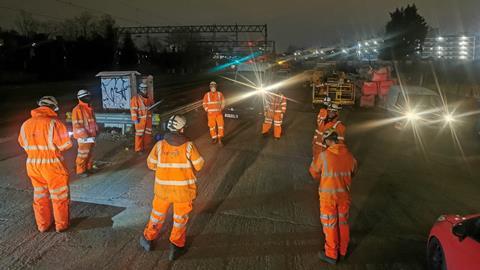
UK: Companies in the railway supply chain are largely confident that they can survive the coronavirus crisis as long as they gain visibility on future work by early autumn, according to the findings of a survey commissioned by the Rail Supply Group.
RSG said the survey undertaken by independent market research organisation Savanta ComRes had found that the ‘vast majority’ of companies had seen declines in revenue, demand and productivity. The visibility of the work pipeline is seen as vital for their short and long-term planning, while a lack of demand for their services and cash flow are seen as significant barriers to recovery.
Firms would like to see an acceleration of the publication of short and long-term work plans, detailing what will be happening and when as well as highlighting where plans have been altered as a result of the crisis.
The survey found companies support the continuation of the mechanisms that Network Rail has put in place to make payments quickly, and many want to see this replicated across the industry.
The survey attracted 442 online responses between April 30 and May 18, and 10 in-depth interviews were conducted with individuals representing organisations across the supply chain. It was supported by partners including the Civil Engineering Contractors Association, Network Rail, Rail Alliance, Rail Forum Midlands, the Railway Industry Association and RSSB.
The results will be now by analysed by the coronavirus taskforce which was established by RSG at the invitation of the government to set out a path toward the ‘fullest, fastest and best’ recovery for the supply chain. The taskforce plans to publish its recommendations within the next few weeks.
‘Our research reaffirms the importance of a strong working relationship between the rail sector and government as detailed in the Rail Sector Deal’, said Philip Hoare, Chair of the Rail Supply Group and President of Atkins, on June 8. ‘Our industry champions are already mobilised and planning how we might accelerate our work to help the sector bounce back and continue its transformation.’



